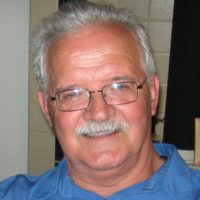Editor’s note: Excerpted from Sam Webb’s report to the CPUSA national committee meeting November 13th, 2009.
The world, it is generally acknowledged, has been torn loose from the old moorings that for decades structured life for billions of people.
This unhinging began with the Volcker “shock” in 1979 (when Federal Reserve Bank chairman Paul Volcker lifted interests rates to nearly 20 per cent), the election of Reagan a year later, and the meltdown of the Soviet Union at decade’s end. But it reached a new stage with the rise of China, India, and Brazil, the resurgence of Russia, the social transformations in Venezuela and other Latin American countries; the Iraq war, and the recent world financial and economic crisis.
At the time of the Soviet collapse, defenders of U.S. imperialism declared U.S. imperial power was preeminent and that would remain the case, far into the 21st century. But obviously they badly misread the tealeaves. Though still dominant, the limits of U.S. power are narrowing and a multi-polar world is taking shape.
It is easy to imagine China rivaling the U.S. on the world scene. To go a step further and predict a civilizational re-centering from Europe and America to Asia, with all its implications, isn’t out of the question either. (Although, it should be added that while trends are instructive, they become less so as they stretch far into the future. History can, and usually does, surprise.)
This transitional period, some theorists of international relations say, will bring instability, even chaos, and we should not dismiss this out of hand. In earlier periods, conflict, crisis, and war scarred the landscape as once dominant states declined and new ambitious rivals sought to take their place. Such rivalry turned the first half of the 20th century into a bloody and barbaric era.
At the same time, the past doesn’t have to be prelude to the future. People and nations do learn. Historical memory can be a force for progress. The vast majority of humankind strongly desires an easing of tensions, an end to violence, and the normalization of international relations.
They want dialogue, negotiation, and a cooperative effort to address climate change, nuclear weapons proliferation, finite natural resources, swelling poverty and disease and broad-based and sustainable economic growth – not threats, war, and uneven economic development.
All of these challenges require speedy collective action. The global clock is ticking
While rivalry between states – especially in a multi-polar world – is built into the world system, the appetite and ambition of our imperialism constitutes the main obstacle to cooperation, peace, and equality.
A less malleable world
U.S. imperialism so far has been reluctant to yield ground to subordinate classes, nations, and regions entwined in the global world order. But reluctance is one thing; capacity to enforce your will is another.
U.S. imperialism doesn’t have the same reserves and legitimacy as it had in the second half of the 20th century, its global power is far more circumscribed and collective resistance to the re-imposition of old imperial relationships, dressed in new forms, comes from many different quarters, including from the American people. Hundreds of millions are insisting that the new century not be a rerun of the second half of the old, in which a single country and its allies largely determined the path of global political and economic development. Such a path was unjust, unsustainable, and unacceptable then and is more so now. The world is far less malleable to the architects of imperial rule.
The current worldwide economic crisis has reinforced these sentiments. The turn to neoliberalism, financialization, and hyper globalization three decades ago not only resulted in financial and economic ruin on a world scale, but also, it is commonly understood, originated on Wall Street and in Washington.
Thus the global economic crisis has amplified the insistence of people worldwide that a new economic order be constructed – shorn of U.S. dominance. Not everybody is having it, especially in the seats of imperial power. Some want to reconstruct the old order, while some others are for minor changes that would not undercut in any significant way the dominant position of the U.S.
The outcome of this struggle is still to be decided in the decades ahead. And like everything else, it will be determined as much by human actions as the evolution of broader objective processes.
And given the immediacy of global challenges, history has to be speeded up. This is where humankind again comes in.
Foreign policy
President Obama is resetting U.S. foreign policy. In a series of speeches, he has accented human solidarity, diplomacy, cooperation, and peaceful settlement of contentious issues. In nearly every region of the world, he is engaging with states that during the Bush years were considered mortal enemies – Iran, Cuba, Venezuela, North Korea, and others.
In Latin America, he expressed a readiness to put relations on a different footing. In a historic speech in Prague, he voiced his wish to reduce and ultimately abolish nuclear weapons. And in an unprecedented address in Cairo he indicated his eagerness to reset relations with the Muslim world, sit down with the Iranian government, and press for a two-state solution to the Palestinian-Israeli conflict.
No small achievements! What the president has said (and done) so far constitutes a turn from the policies of the previous administration and an acknowledgement that the U.S. has to adapt to new world realities and challenges
.
And he does so with support of some (more sober and realistic minded) sections of the ruling class.
At the same time, neither the current administration nor the more sober-minded sections of the ruling class are ready at this point to give up U.S. global primacy – top dog status.
Adjustments in policy are not the same as a change of policy. They are not equivalent to reentering the world community on the basis of reciprocity, equality and cooperation.
And yet, it would be a serious mistake to dismiss or “damn with faint praise” the new approaches of the president.
For these changes can make a difference in the lives of hundreds of millions of people. They also create a better political environment for the progressive and anti-imperialist movements to press for a new foreign policy.
That there are inconsistencies and contradictions in words and deeds of the president and others in his administration – on policy towards Cuba, Honduras, Afghanistan, Iran, the fight against terrorism, the Israeli-Palestinian conflict, etc – comes as no surprise. The opposition to any significant adjustments of foreign policy is enormously powerful and includes core sections of transnational corporate capital, the military-industrial and energy complexes, the Pentagon, right-wing extremists, the foreign policy lobbies, other elements of the national security state, and not least elements within the Obama administration itself.
Each, motivated by geoeconomic and geopolitical objectives and couch their imperial/hegemonic aims in the language of democracy, humanitarianism, and anti-terrorist bromides (terrorist actions are an undeniable danger and deserve a collective, proportionate, and many layered response, but shouldn’t be turned into a rationalization for the protection and expansion of U.S. imperialist interests), is anxious to maintain U.S primacy in some form.
U.S. foreign policy, however, is not solely decided in elite circles. In the larger vector of struggle that determines our place in the world are found the American people and people and governments the world over.
An immediate task is to resolve the highly combustible trouble spots mentioned above in a peaceful, democratic, and just way, thereby easing tensions and weakening the hand of imperialism and political reaction worldwide.

MOST POPULAR TODAY

High Court essentially bans demonstrations, freedom of assembly in Deep South

Zionist organizations leading campaign to stop ceasefire resolutions in D.C. area

U.S. imperialism’s ‘ironclad’ support for Israel increases fascist danger at home


UN warns that Israel is still blocking humanitarian aid to Gaza






Comments